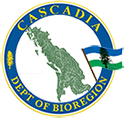Whidbey Institute, Permaculture Design Course With Penny Livingston
Whidbey Insitute 3901 Old Pietila Rd, Clinton, WA, United StatesWhidbey Institute Permaculture Design Course With Penny Livingston, Michael Pilarski, Pamela SeaMonster, Douglas Bullock, Dave Boehnlein and Brian Kerkvliet June 20 – July 4, 2024 REGISTER TODAY! Embark on a transformative journey into regenerative living with the Permaculture Design Certification Course offered at the Whidbey Institute in Clinton Washington. This comprehensive program is designed to empower individuals with the knowledge and skills needed to design and create regenerative, resilient systems. Permaculture is a design science rooted in the observation of naturals systems which aids us in designing human settlements that have the stability and resiliency of a natural ecosystem. Permaculture is a practical set of ecological design principles and methods for human settlements which can be applied to homestead, urban, suburban and watershed scale. Permaculture principles provide a way of thinking that enables people to establish highly productive environments that provide for food, energy, shelter, habitat and other material and non-material needs. Throughout this course, participants delve into the principles, strategies, techniques and methods of permaculture with some of the most experienced designers and instructors in the United States. Key Highlights: Hands on Learning: Engage in hands-on action learning activities, site visits and practical exercises that bring permaculture principles to life. Gain valuable experience in implementing sustainable practices directly applicable to real-world scenarios. Ecological Design Principles: Explore the core principles of permaculture including observation, pattern recognition and integration diverse elements to create harmonious and productive landscapes. Regenerative Agriculture: Learn about organic farming techniques, agroforestry and polyculture systems that promote biodiversity and soil health. Discover ways to enhance food security while minimizing environmental impact. Water Management: Understand sustainable water harvesting, storage and distribution methods. Explore ways to conserve water resources and design resilient systems in response to changing climate patterns. Renewable Energy: Delve into the integration of renewable energy sources within permaculture design. Explore practical applications of solar, wind and other sustainable energy technologies. Community Building: Recognize the importance of community in regenerative living. Discuss strategies for fostering inclusive and resilient communities that support the principles of permaculture. By the end of this certification course, participants will not only gain a profound understanding of permaculture design but will also receive a globally recognized certificate that attests to the compentance in implementing sustainable practices. Join us at the beautiful Whidbey Institute and become a catalyst for positive change in your life, your community and the world. Embrace a regenerative approach to living. The Permaculture Design Certification Course (PDC) is a 72 hour minimum course. The Permaculture Certificate is globally recognized throughout the world. The holder of a Permaculture Design certificate has achieved a working understanding of ecologically based sited design, planning and management as well as an understanding of principles, strategies and techniques available to inspire directions toward community resiliency, economic stability and personal growth. Full Course Description The course is endorsed and recommended by the Permaculture Institute of North America. For more information check http://pina.in






